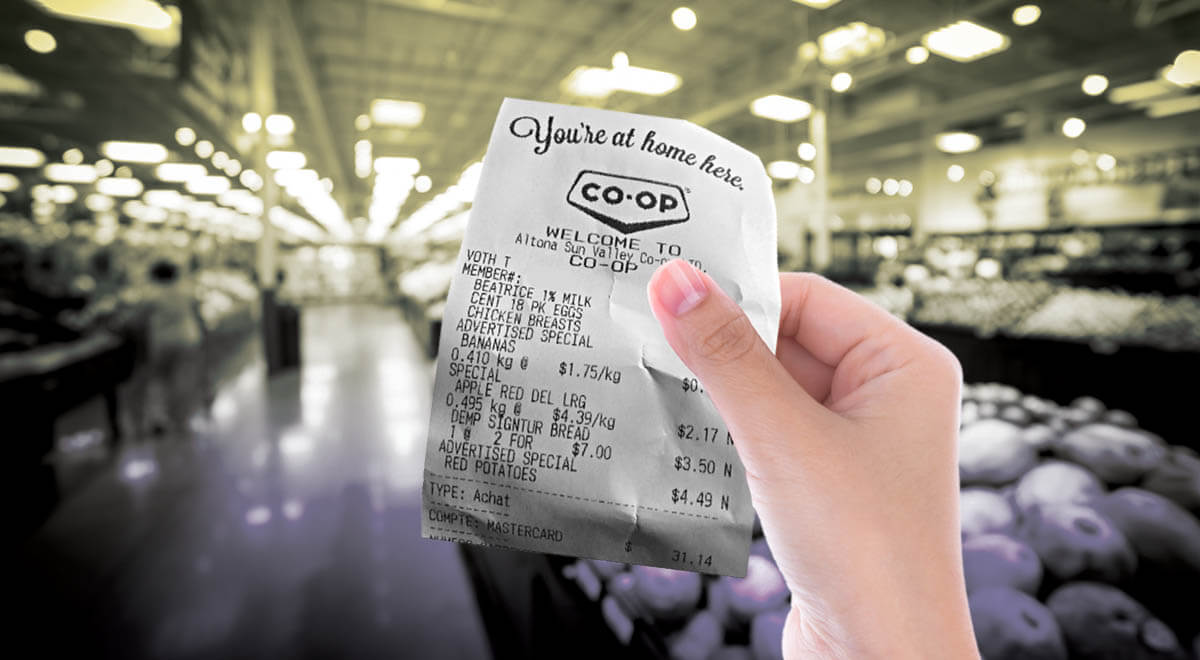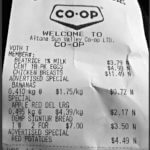How this frugal Manitoba man saves on groceries
It might be a good idea to start a 'grocery spending account'
Advertisement
It might be a good idea to start a 'grocery spending account'


READ: How one family spent $573 at CostcoThe one thing that is way cheaper, however, is their dairy and egg products. Canada’s protectionist supply-management system for dairy and eggs, which has recently been a point of contention in trade discussions, is the reason these products are so expensive. That’s why for Voth, “cheese is one of those things that I never buy unless it’s on sale.” Eggs, however, he’s less particular about even though he can get them for an astonishingly low 50 cents to $1.50 USD per dozen in Roughrider State, depending on if he goes to his usual grocer or the discount-chain Target. On this receipt, he’s paid 28 cents per egg. Instead, if he’d hopped across national lines for this purchase, he’d have paid at most 12 cents per egg and saved at least 124 per cent. He always breaks down food prices into per-100 grams, so he’s fully aware of the cost discrepancy for this staple, even with the currency conversion, but the absolute savings are so low that it’s not worth the drive. Currently, he doesn’t have a spending plan. “I don’t spend much time budgeting, especially on something like groceries,” he says. “I know that I spend frugally on groceries, so I know I don’t ever go into a store and walk out and spend a hundred dollars more than I wanted. I have a list of things that I know I need.” We spoke to Steve Bridge, a CFP with Money Coaches Canada to find out what Voth is doing right, and what he can improve on.
MORE: 8 things you should always buy at CostcoSince there are only two grocers in town, Bridge recommends comparing the flyers of each store and planning his meals based on what’s on sale that week. With so little competition, it also may be a while until a particular item gets reduced again, so it’s a good idea to stock up on non-perishable goods.
 This post is part of Spend It Better, a personal finance collaboration between Chatelaine and MoneySense about how to get the most for your money. You can find out more right here.
This post is part of Spend It Better, a personal finance collaboration between Chatelaine and MoneySense about how to get the most for your money. You can find out more right here.
Affiliate (monetized) links can sometimes result in a payment to MoneySense (owned by Ratehub Inc.), which helps our website stay free to our users. If a link has an asterisk (*) or is labelled as “Featured,” it is an affiliate link. If a link is labelled as “Sponsored,” it is a paid placement, which may or may not have an affiliate link. Our editorial content will never be influenced by these links. We are committed to looking at all available products in the market. Where a product ranks in our article, and whether or not it’s included in the first place, is never driven by compensation. For more details, read our MoneySense Monetization policy.
Share this article Share on Facebook Share on Twitter Share on Linkedin Share on Reddit Share on Email